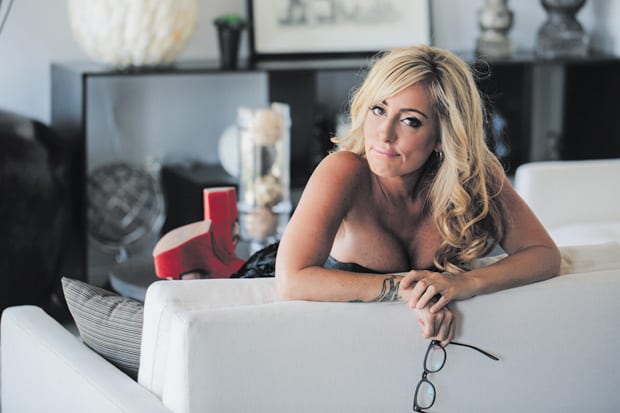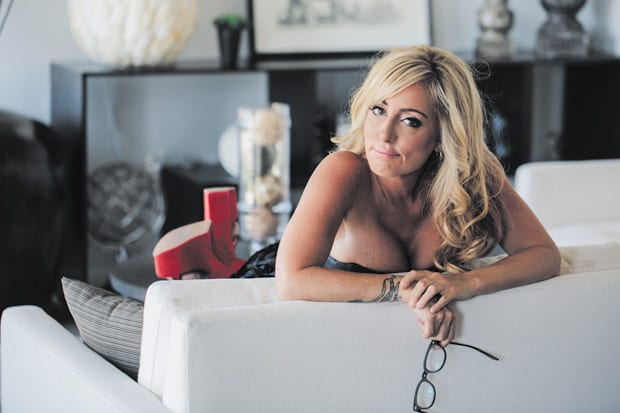Jenny Block learns: When it comes to kindness, one size does not fit all

I’m 5-feet tall. My friend Spike is 6-foot-9. That free radio station T-shirt with the “one size fits all” tag is a dress on me and a crop top on him.
Kindness is the same. One size does not really fit all, no matter what the tag says.
Both of my parents are alive I am very close to my sister. I’ve survived two abusive relationships. And a degenerative disability runs in my family. My fiancé Robin lost her mother, to whom she was very close, more than eight years ago. She and her brother lead vastly different lives and don’t talk often. And she, like many, did not survive childhood unscathed.
Believing that kindness is a universal constant is the root of many a battered heart, many a shattered feeling within an intimate relationship.
At first blush, it may seem as if it is unfair, or even inauthentic, to ask ourselves to behave in a way that it not instinctual — that is, to be kind in a way that is outside of what we imagine kind to me. But it is imperative we do so. Here’s why.
On the surface, it may seem that “kindness is kindness.” But the truth is, what might seem kind to one person can actually be hurtful or at the very least dismissive to another, all depending on their life experiences, temperament and, well, baggage.
I am a smart-ass. The more comfortable I am with someone, the more likely I am to not give a moment’s thought to being a smart-ass. The thing is, what might be a throw-away comment from me could be like a dagger in my partner’s heart.
The other day, we were both dashing around to get ready to head out of town — Robin to Alabama to work during a particularly challenging week, and me to Dallas to face a zillion appointments, some of them not so pleasant.
We bumped into one another as we got ready and I made a comment about knocking out a wall to make a bigger bathroom — which, in reality, we have no need for. I thought of it as a joke. What she heard was that the house wasn’t enough, she wasn’t enough, the work she did wasn’t enough.
The remark led us into a full-blown argument that dragged into the night. Cruel words were said. Feelings were shredded. Defenses rose and self-protection was invoked.
That’s just one personal example. It’s happened before. It’s gone both ways. And it’s always the same thing: One of us is cruel without meaning to be, because we aren’t thinking about how our comment will fall on the other person’s ears.
So I am practicing kindness in a whole new way. I am learning to be kind to her. I am learning that though her mother has been dead for nearly a decade, she misses her as if it was yesterday. I am learning that even though I love her and want to be with her, her past partners and relationships still sting and cause her to think I, too, could cause the harm they inflicted. I am learning that even though I am not a part of her memories, she still needs them. I am learning that things that are important to her are things I have to learn to respect because I love her.
It’s hard because I want to act in a way that’s natural to me. But I also want to be kind — not just generically kind, but kind to her in the way she needs it. She has to recover in her own way, in her own time from her losses and betrayals. My job as her partner in the world is to stand next to her as she does and not think about how I would recover or what I need and instead, learn how I can be a support to her.
She, of course, needs to do the same for me — to remember that I am a mother and that no matter how empathetic one is, one cannot understand what it is to be a parent without actually being a parent; to remember that I have survived abuse, that I face illness and that not all of my family relationships are what I wish they are; to remember that my experiences are different and yet no less valid than her own. In short: To remember that I need her to be kind, too, even when she feels the weight of the world and of her job and of her past.
Being a couple isn’t easy. But when it’s with the right person, it’s always worth it. And to be kind in the way that your partner needs and longs for is the greatest gift you can give. So every day I do my best and every day I hope to get a little better at it and every day I remember that being my best self is always the best thing I can do to create the best relationship where we both feel safe and loved and valued and where kindness always reigns.
Block is the author of the The Ultimate Guide to Solo Sex, foreword by Betty Dodson.
Have a question about sex you want Jenny to address? Email it to GirlOnGirlsJenny@gmail.com.
This article appeared in the Dallas Voice print edition December 30, 2016.











